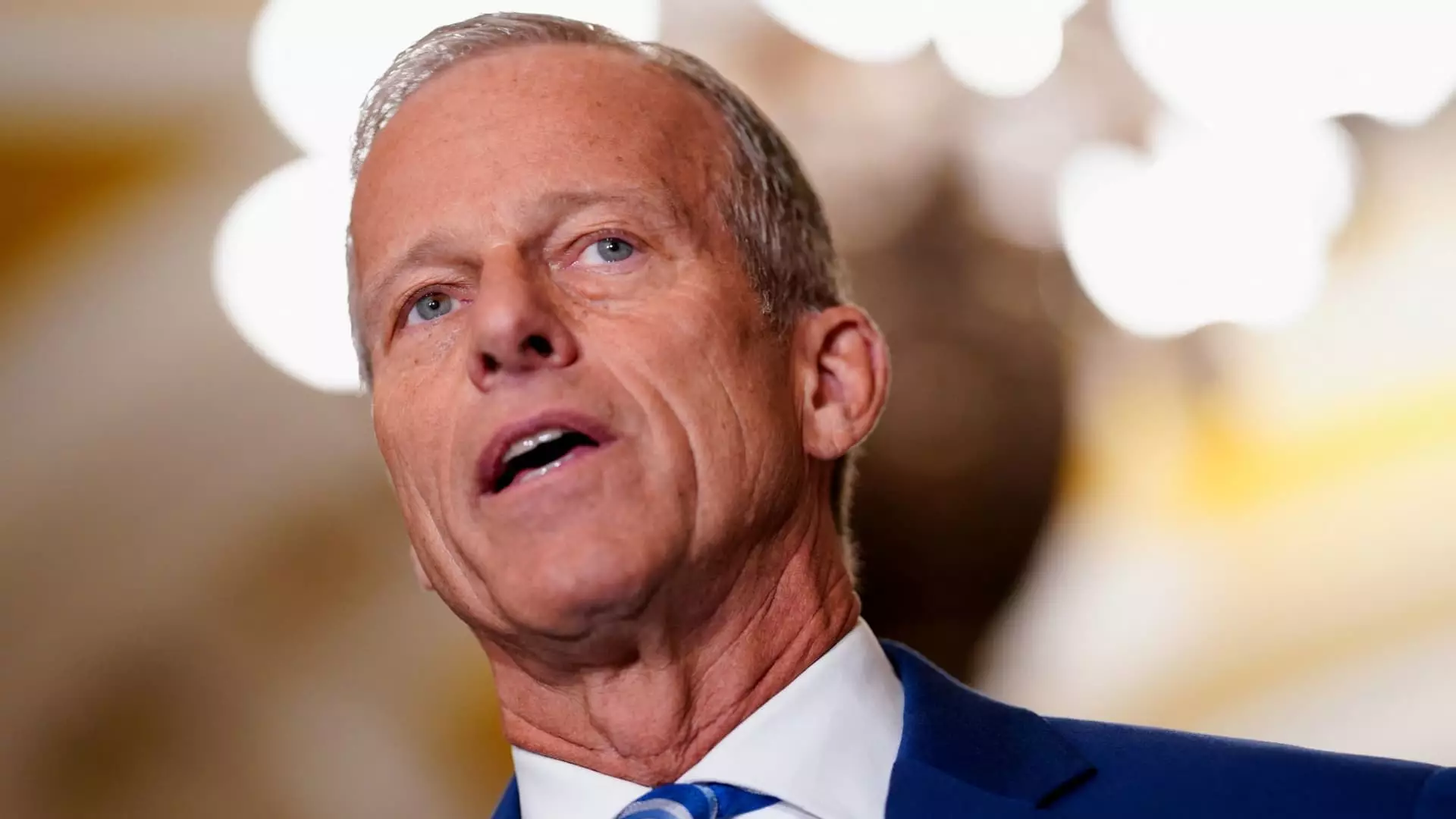The recent procedural victory for President Donald Trump’s so-called “big, beautiful bill” in the Senate was less a triumph and more a precarious inch forward in an uphill battle. The 51–49 vote to proceed to final debate barely passed, revealing deep fractures within the Republican Party and highlighting the severe obstacles that still face this sprawling spending package. When three hesitating Republican Senators—Mike Lee, Rick Scott, and Cynthia Lummis—finally succumbed to pressure and voted “yes,” and Sen. Ron Johnson flip-flopped his stance, it became painfully evident that this legislation lacks broad consensus and is far from stable. This fragile alignment raises serious concerns about the legislative process and the consequences of pushing policy that divides even the ruling party so sharply.
Trump’s Deadline: A Symbol of Recklessness Over Responsibility
With Majority Leader John Thune vowing to meet President Trump’s arbitrary July 4 deadline, the push to rush a mammoth and complex bill smacks not of responsible governance but political theater. Deadlines can motivate efficiency when used judiciously, but in this case, the self-imposed timeframe risks marginalizing thorough debate and comprehensive scrutiny on a 940-page monstrosity that will drastically reshape American domestic policy. The insistence on hurrying the package for a symbolic holiday feels less like leadership and more like a desperate attempt to score political points. When legislation of this magnitude requires hours of debate just to be read out loud, rushing it to passage threatens transparency and accountability—fundamentals at the heart of a functioning democracy.
Deep Divisions Emerge Among Republicans and Democrats Alike
The drama of the Senate vote lays bare the unwillingness of many lawmakers to blindly align with party leadership or the president. With every Democrat and two Republicans voting against the motion, and the final tally hinging on last-minute defections, the bill’s foundation appears unstable. Democrats, led by Chuck Schumer, are rightly pushing for exhaustive reading and debate, signaling their mistrust of a bill that emerged from behind closed doors with little opportunity for meaningful amendment. Meanwhile, House Republicans have already expressed serious reservations, especially concerning the deep Medicaid cuts embedded in the Senate version. This signals another political minefield in the House, where Speaker Mike Johnson cannot afford to lose any members if they hope to pass the bill. The tight margins on both sides reflect a growing disenchantment with the bill’s contents and the fraught politics surrounding its passage.
The Substance Behind the Spectacle: Dangerous Policy Choices
Beyond the political chess match, the content of the bill itself deserves sharp critique. Deep cuts to Medicaid threaten to unravel critical health coverage for millions of vulnerable Americans, contradicting the center liberal values that prioritize social safety nets and equitable access to care. These cuts would exacerbate inequalities and compromise the well-being of countless families already struggling in precarious economic conditions. While the bill is wrapped in the grandiose language of “beauty” and “bigness,” its actual substance betrays a regressive stance on healthcare and social programs. Rushing these cuts through legislative chambers under tight party-line votes suggests a disregard for the human cost and an overemphasis on political victory.
Leadership’s Failure to Build Genuine Consensus
This entire episode underscores a failure of leadership on all fronts. Thune’s determination to push the bill forward despite flagging support, Trump’s pressure from the White House insisting passage to avoid “ultimate betrayal,” and the partisan brinkmanship displayed all reflect a disconnect from the realities facing lawmakers and constituents alike. Effective policy should be shaped by negotiation and compromise, not rigid ultimatums and political coercion. Clinging to a narrow majority to force through controversial legislation breeds instability and fuels public cynicism toward government. The Senate’s precarious vote is a symptom of deeper ailments in the legislative process that center on partisanship and insufficient dialogue.
The Perilous Road Ahead
As the bill moves toward a final vote in the Senate and faces uncertain prospects in the House, the stakes have never been higher. The ongoing turmoil signals a legislative fight that could further fracture the Republican Party and alienate moderate lawmakers who see the package as too extreme. It also sets the stage for prolonged conflict with Democrats who view it as a direct threat to essential public services. The ultimate fate of this “big, beautiful bill” will test whether lawmakers are willing to transcend party lines to serve the broader interests of the nation or whether political expediency will continue to trump principled policy making. What seems abundantly clear is that this approach risks sacrificing sound governance for short-term victories, with damaging consequences for Americans’ lives and trust in their government.


Leave a Reply